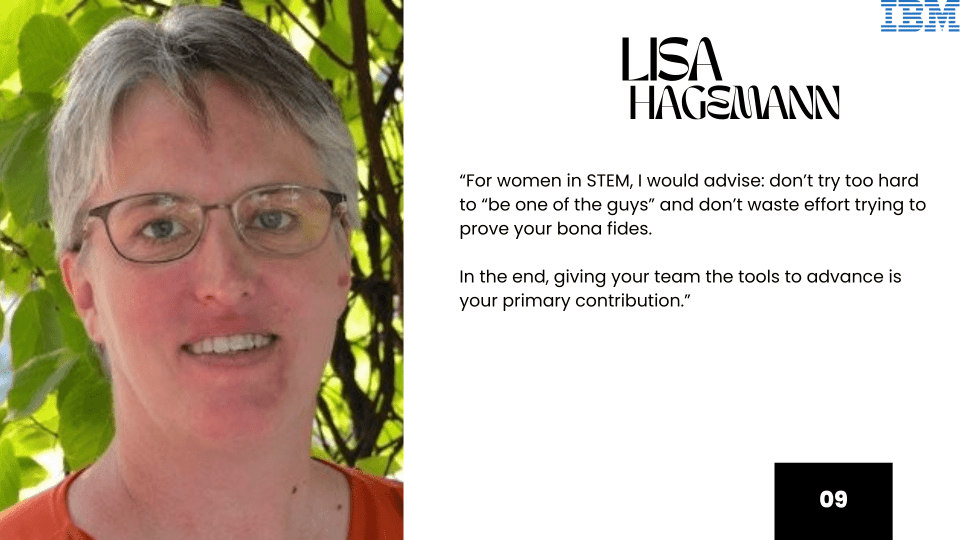Sudipto Ghosh (SG): What advice would you give women entering the STEM field?
Lisa Hagemann: “Don’t ignore those interpersonal relationship elements that aren’t technical. They matter a lot. Focus on growing in your craft and as a professional; success will follow.”
SG: What are some of the greatest challenges you encountered as a woman in STEM?
Lisa: “I learned over time that being an engineering manager is, in fact, being a people manager. The job isn’t about managing technology, owning the technical vision of a product line, or keeping a project board updated or burndown charts. It’s about the people on your team.
Also, that a lead developer is much different from an engineering manager. I struggled in a past role to convince the C-team of this, to avoid the trap that the only way an engineer can advance is to enter a management track. Fortunately, the industry has evolved its thinking in this area over the last decade.”
SG: Describe some of your lowest lows and highest highs as a woman in STEM.
Lisa: “One of my lowest points was nearly 10 years ago when I thought I was working for a progressive company, only to find out that I was making a solid 30% less than my male peers in the same role. The gender pay gap is no joke. Some of the high points have been the rewards of years of effort in the industry to bring women into the forefront of companies, headlining conferences and generally being sought out for inclusion.”
SG: How can women support other women in their organizations?
Lisa: “Supporting other women comes from promoting visibility to providing a safe space to discuss challenges. Celebrating achievements and providing mentoring are also well-established avenues.”
SG: How can women develop their leadership skills?
Lisa: “Most of my advice is gender agnostic — focus on your people. Grow your individuals in their craft and think strategically about what traits or skills you need to round out your team.”
SG: What career advice do you have for women in tech/STEM?
Lisa: “For women in STEM, I would advise: don’t try too hard to “be one of the guys” and don’t waste effort trying to prove your bona fides. In the end, giving your team the tools to advance is your primary contribution.”
SG: How do you push for systemic change around ideas that are new or not that popular?
Lisa: “Find a like-minded cohort. Work with them to follow your vision and implement small incremental changes. Someone who can express their ideas, concerns, and feedback respectfully, fostering a culture of collaboration and transparency, and providing critical thinking and independent analysis is crucial. This will help bring others onboard with the idea, each able to contribute to the broader adoption of the change.”


